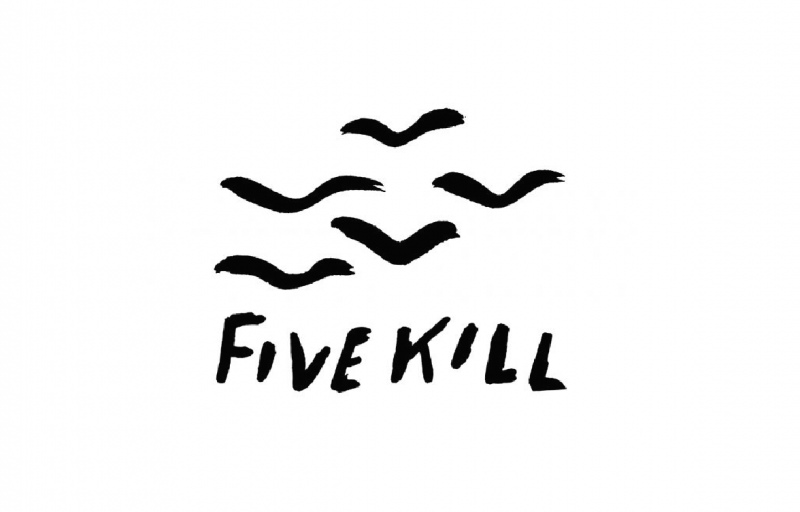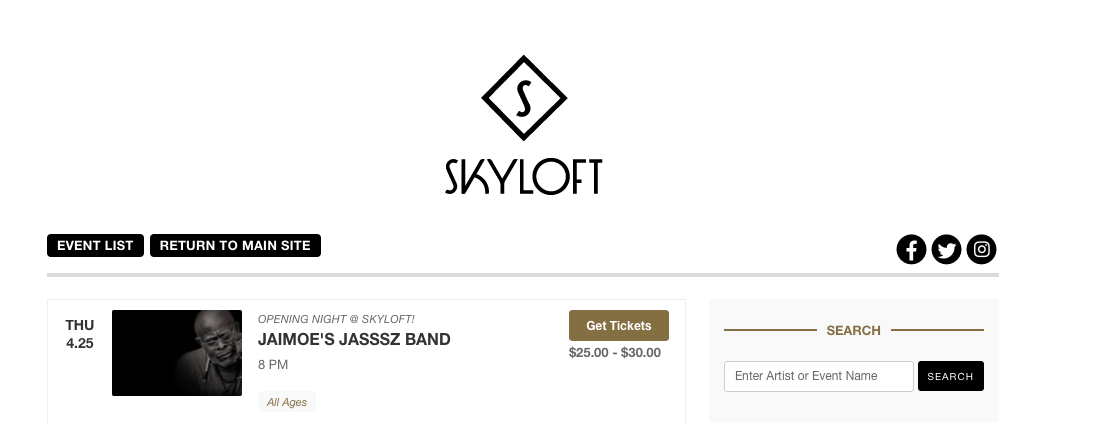This article first appeared in The Alt on May 7, 2018.
Everybody loves a good supergroup—the assemblage of an area’s best and brightest who are set on accomplishing a common goal. In a region that is overflowing with music subcultures and communities, there’s something satisfying about seeing a number of the scene’s main veins converge to form a beating heart.
Meet Five Kill Records. The new non-profit record label consists of members from five locally established labels and DIY music collectives: B3nson Recording Company, Collar City Records, Swordpaw Collective, The Rev Records and Bee Side Cassettes.
The label was originally proposed by B3nson veteran Eric Krans of The Parlor as the band looked for a new, efficient way to release their latest album.
“The Parlor had tried for a long time to submit to record labels that we loved and got no response. The responses that are out there are a bit dubious,” Krans said.
After years of having tried on their own to strategically navigate the music industry—which Krans likens to Fight Club in that “the only rule about the music industry is that you don’t talk about the music industry”—the label came together in less than a year. In a lot of ways, it was a long time coming.
“We’re putting together the dream team,” he said of the dozen or so board members of Five Kill. “We have this stitched together fabric of people we have worked with for years. It was a very organic thing.”
“It’s a collaboration of different age groups and different aesthetics as well,” B3nson and Swordpaw member Katie Hammon (Bear Grass) said.
Some representatives in the group, like Collar City Records’ Troy Pohl have been active in the local music industry for 15 to 20 years and collectives like The Rev Records and B3nson Recording Company—which has been credited for reviving Albany’s indie music scene—started up more than a decade ago.
Other members, such as the Bee Side Cassettes crew, are relatively new but have been actively elevating local artists in recent years, putting out cassette projects by Albany’s Hate Club and Odd Cadre or Philly-by-Albany’s Another Michael, Jouska and they are gutting a body of water.
If you’re familiar with even one of these labels or collectives, it’s likely you know the bands associated with another. They’ve have had regular crossover projects over the years in terms of recording, setting up shows or putting together major events such as the Albany Music Coalition program or the annual Restoration Festival (Rest Fest) that brought acts like Titus Andronicus, Deer Tick and Mount Eerie to the area. Now, they’re collaborating as one entity.
“All of us have such different experiences in music,” Kim Neaton of Guthrie/Bell Productions said. Everyone has something different to offer. There’s a good group of opinions.”
As a joined power of musicians, recording engineers, producers, house-show organizers and promoters, Five Kill looks forward to using their diverse knowledge of the music industry to propel local talents into a larger spotlight.
“One thing Eric said to me was that we kept thinking we had found what’s behind the curtain but there was always another curtain,” The Rev Records founder Harith Saam said. “All of us, the members of the board, we bring the experience because we’ve made the mistakes. We’ve pulled back however many curtains and I can’t say we’ve cracked it now, because I’ve said that before.”
The label launched May 1 but had an album release right off the bat with The Parlor’s Kiku on April 13 and has five upcoming projects from some of their group’s own bands such as Bear Grass and Neighborhood of Make Believe as well as Troy and Albany groups Rechorduroys, Onlyness, and Blue Ranger, set to be released through November 2018. At least two more albums are “in the pipeline but not set in stone,” Krans said.

Photo by “Our Two Hearts” Diana Mar. Bear Grass’ album LEFT is due August 2018.
From there, Five Kill will welcome new bands into the fold. “At that point, we’ll have a better understanding of how much we can do in a year,” Hammon said.
The label has already had a significant response. Bee Side Cassettes’ Dan Paoletti estimated that the group received 10 submissions within the first 18 hours of its launch. For Five Kill, it goes to show there was a cultural gap that needed filling.
“There are other record labels that are local but they’re not necessarily releasing local albums so we’re really trying to focus on Albany, New York, the Capital Region, understanding that there are so many artists here who don’t have the ability to be represented on a larger scale,” Hammon said. “A lot of people don’t even know that’s an option for them.”
A major aspect of Five Kill’s representation as a label is providing services for a band to support and promote their work, so they can focus on making music. These kinds of services can include industry education and assistance such as teaching bands how to book a show, connecting them with professional photographers and videographers for PR packaging or handling the careful timing of song, video and album releases.
“We would make records and get so excited that we finished that we would immediately share [them] with everyone, but the way this industry works is that your currency is in unreleased songs,” Krans said. “We’ve all done it because it feels so good to complete the project, but if you’re completing a record now it should come out a year after. Even after that, you have to keep it afloat, there’s so much work to be done.”
Though they seem like common sense strategies to Five Kill members now, there are plenty of concepts they forget were foreign to them when they were first breaking into the music scene—getting people to listen to their music, for example.
“Starting out, you think it’s as easy as getting the number of radio stations and bugging them into playing your songs but it’s about making those relationships,” Saam said. “It’s a skill set. We know what work to put in and where, we know what avenues to go down.”
Once the artist and project are ready to go, a physical and digital album will be promoted and released nationally and beyond, depending on the artist’s preference.
“One thing I’ve been telling bands is, ‘I can’t promise that you’ll sell thousands for records but thousands of people across the country will hear your music,” Neaton said.
With their years of experience and non-profit status, the Five Kill team looks to provide legitimacy and a sense of security for themselves and their artists.
“It’s a conversation we had very seriously,” Krans said. “Everybody invested their own money into this. The board members put in all they could offer to support artists they admire and it’s awe-inspiring.”
The concept had even been explored by board members well before Five Kill was born. Back in 2012, B3nson’s Aaron Wilson (Barons in the Attic) wrote an article exploring the financial and creative pros and cons of a non-profit label and given the few—or hard to reach—established non-profit labels out there.
“It’s definitely been a battle, with non-profit paperwork, artist contracts and working with lawyers, but it’s been a learning process,” Neaton said of the of their work ahead of the launch. “Having real artist contracts makes us responsible for delivering for the band, and it makes the band responsible for delivering as well.”
The model would also allow for fans to support artists while benefiting from a tax write-off if the label were to use a funding source like Kickstarter. But at the end of the day, the goal is to ensure that the maximum benefit goes right back to the artist.
“What we’re really hoping to share is what we’ve figured out over the years, to point them in the right direction,” Krans said.
“We are just a group of friends working together in music, but it’s much bigger than that,” Neaton added. “We finally feel like it’s real, this is happening.”
Listen to the latest single releases from Five Kill artists below:





